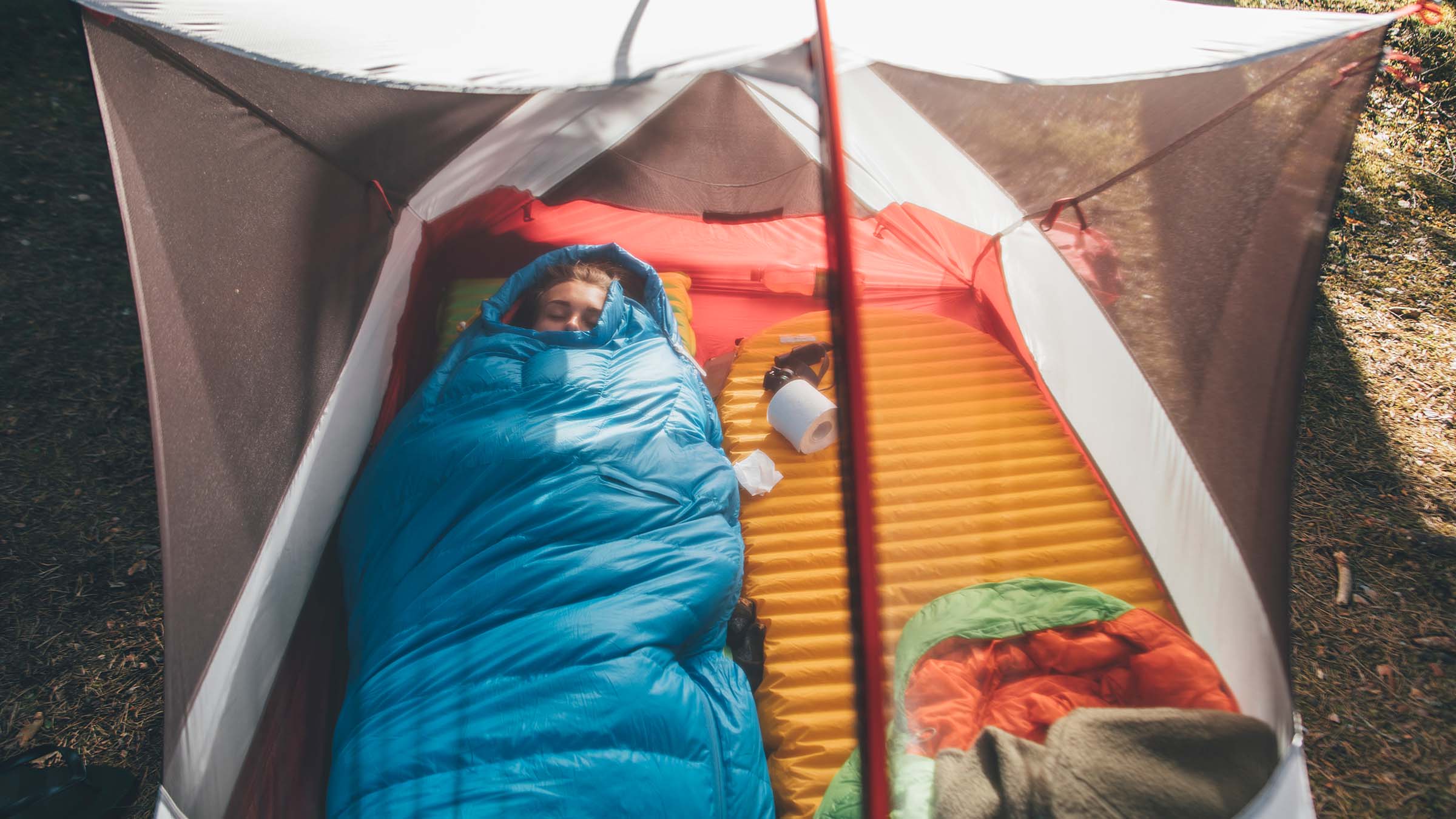Snooze Like a Baby With These Six Camping Sleep Tips

Want to sleep like a champ? Keep your tent in primo shape! (Photo: Westend61 via Getty)
Have trouble sleeping in the backcountry? You’re not alone: A lot of hikers, even the most experienced, toss and turn in their tents at night. When your sleep troubles are bad enough, that can leave you fatigued and unable to enjoy your days on the trail. We delved into the science of sleep, getting advice from doctors, expert guides, and adventurers about how they conquered their insomnia. Outside+ members can read the full story. Not a member? We collected a couple of tips for beating sleepless nights here. Get the advice below and sign up for Outside+ today.
Stop hiking three hours before bed. “Exercise itself should help bring sleep, but not if you’re active right up to bedtime,” says Dr. Thomas Reilly of Liverpool John Moores University. Why? Exertion releases the stimulating hormone cortisol. Unless you’re really trying to squeeze every mile out of the day, give yourself some time to unwind by cooking, reading a book, or just enjoying the sunset.
Give yourself three hours to digest dinner–a full belly can disrupt slumber. But a light snack sometimes helps, advises Mary Susan Esther, president of the American Academy of Sleep Medicine. Try caffeine-free hot cocoa or a chunk of cheese; dairy products combined with carbs help promote drowsiness.
Skip the caffeine (and nicotine) in the four to six hours before bed–it keeps you alert by blocking sleep-inducing adenosine in your brain, and can take hours to wear off. Carry some hot cocoa or decaf tea or coffee if you’re in the habit of a hot evening drink.
Don’t nap after 3 p.m. The temptation to plop down under a tree and have a snooze can be overpowering. Sometimes that’s OK, but time it wrong and it could impact your sleep later. A short (one hour or less) catnap can perk you up, but doing it too late in the day diminishes your natural sleep drive, leaving you too alert at bedtime.
Go to bed at your usual time. Routine is king when it comes to sleeping well. Your body’s sleep/wake rhythms stick to a regular schedule, and it’s very difficult to shift them for a night or two.
Pick your site carefully. You wouldn’t sleep on top of a woodpile, so why would you expect to get good sleep on rough, uneven ground covered with branches and twigs? Take the time to find a level, wind-sheltered campsite free of rocks and sticks, and you’ll find yourself naturally relaxing more.